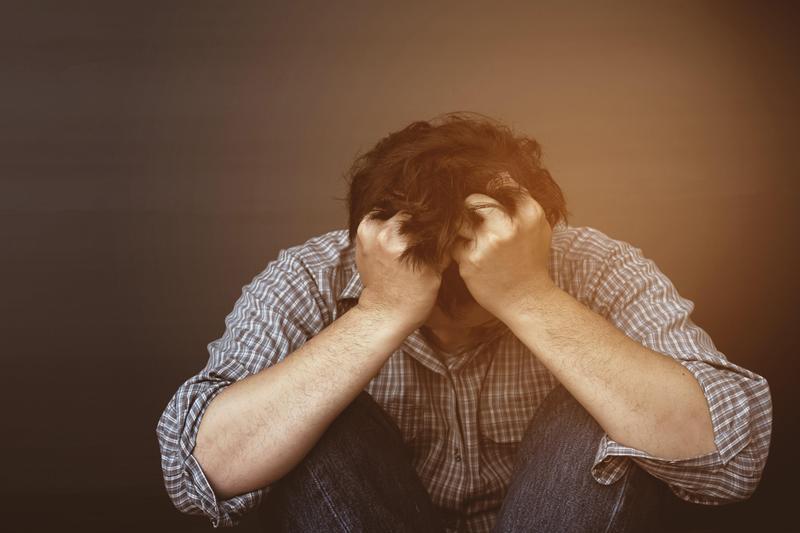Anxiety
Anxiety
Introduction
Anxiety is a common human emotion that most people experience at some point in their lives. While it is natural to feel anxious in certain situations, excessive and prolonged anxiety can become overwhelming and interfere with daily life. In this article, we will explore what anxiety is, its common causes, and effective strategies to manage and cope with it.
What is Anxiety?
Anxiety is a normal response to stress or danger. It is our body's way of alerting us to potential threats and preparing us to face challenges. However, when anxiety becomes chronic or disproportionate to the situation, it can negatively impact our mental and physical well-being.
Common Causes of Anxiety
- Stressful Life Events: Major life changes, such as moving, starting a new job, or going through a difficult breakup, can trigger anxiety.
- Trauma: Past traumatic experiences can lead to the development of anxiety disorders.
- Genetics: Some individuals may have a genetic predisposition to anxiety disorders, making them more susceptible to experiencing anxiety.
- Environmental Factors: Certain environments or living conditions can contribute to feelings of anxiety.
- Health Conditions: Medical conditions or chronic illnesses may also contribute to the development of anxiety.
Dealing with Anxiety
When dealing with anxiety, it's essential to take proactive steps to address and manage it effectively. Here are some recommended actions you can take:
- Acknowledge and Accept: Recognize that you are experiencing anxiety and accept it as a normal human emotion. Avoid self-judgment and remember that it's okay to feel anxious sometimes.
- Seek Professional Help: If your anxiety is persistent, interfering with your daily life, or causing significant distress, consider seeking help from a mental health professional. They can provide expert guidance, offer personalized coping strategies, and, if necessary, recommend therapy or medication.
- Educate Yourself: Learn more about anxiety, its causes, and its effects. Understanding the nature of anxiety can help you develop a more informed and compassionate perspective toward yourself and others who may also experience anxiety.
- Practice Self-Care: Prioritize self-care by getting enough sleep, eating nutritious meals, and engaging in activities that bring you joy and relaxation. Taking care of your physical and emotional well-being can have a positive impact on anxiety.
- Mindfulness and Meditation: Engage in mindfulness practices or meditation to increase awareness of your thoughts and emotions without judgment. Mindfulness can help you better understand your anxiety triggers and respond to them more effectively.
Some coping mechanisms for anxiety
Coping with anxiety can be challenging, but several effective strategies can help you manage and reduce its impact on your life. Here are some practical ways to cope with anxiety:
- Identify Triggers: Recognizing what triggers your anxiety is the first step in managing it effectively. Keep a journal to track situations, thoughts, or events that make you feel anxious. This can help you understand patterns and work on addressing specific triggers.
- Practice Deep Breathing and Mindfulness: Deep breathing and mindfulness techniques can help you stay present and grounded during moments of anxiety. By focusing on your breath and observing your thoughts without judgment, you can reduce the intensity of anxious feelings.
- Exercise Regularly: Engaging in regular physical activity can help reduce anxiety by releasing endorphins, which are natural mood enhancers. Whether it's walking, jogging, yoga, or dancing, find an exercise routine that suits you and stick to it.
- Limit Caffeine and Alcohol: Both caffeine and alcohol can exacerbate anxiety symptoms. Try to reduce your consumption or avoid these substances altogether, especially during times of heightened anxiety.
- Prioritize Self-Care: Ensure you get enough sleep, eat balanced meals, and make time for activities that bring you joy and relaxation. Taking care of your physical and emotional needs is crucial for managing anxiety effectively.
- Challenge Negative Thoughts: Learn to challenge negative thought patterns that fuel anxiety. Replace irrational thoughts with more realistic and positive ones. Cognitive-behavioral therapy (CBT) can be beneficial in this regard.
- Practice Progressive Muscle Relaxation: Progressive muscle relaxation is a technique that involves tensing and then relaxing different muscle groups to reduce physical tension associated with anxiety.
Conclusion
Anxiety is a common human experience, and it's essential to remember that you are not alone in your struggles. By understanding the causes of anxiety and implementing effective coping strategies, you can regain control over your life and reduce the impact anxiety has on your well-being. If your anxiety becomes overwhelming or persistent, don't hesitate to seek professional help. Remember, there is no shame in seeking support and working towards a healthier, anxiety-free life.
